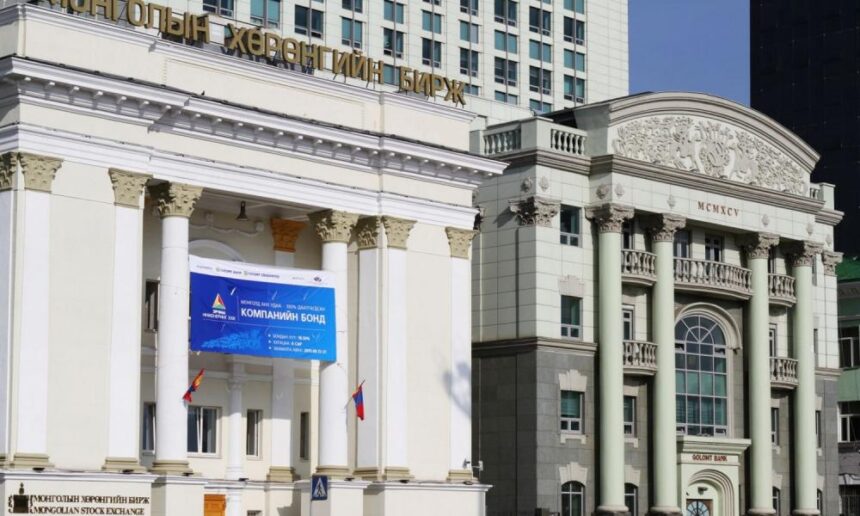Since signing a Memorandum of Understanding with the government, Mongolbank has printed approximately 3.5 trillion MNT in three years, and injected the money into the economy through commercial banks under many different programs. This amount of money, which equals 75 percent of Mongolia’s budget revenue, has gone to the banks with an interest rate almost three times lower than the market rates. Having calculated their costs and profits after receiving the money, the commercial banks have increased the interest rate by 3-4 percent when lending to clients.
In this fashion, only a few commercial banks keep receiving billions of tugriks with an interest rate of 5-6 percent under the programs for price stabilization and housing loans. However, they are getting the money with no specific terms or any restrictions such as a requirement to return the money if they are not able to lend it out. It appears that the banks have significantly cut their lending to people since 2014.
By the end of 2014, approximately 100 companies acquired loans under the ‘Export promotion and export substitution 888’ project. Some companies are still not able to get the loan despite participating in the project and having all required documentation ready. As a last resort, those companies established an NGO named ‘The Group of 777’ and held a press conference to demand the government not to show discrimination.
WHO PROFITS FROM GOVERNMENT BONDS GOING THROUGH BANKS?
Simultaneously with the price stabilisation program, the government started issuing a large amount of short term bonds. In other words, the government started covering its operation costs using loans. The government issued bonds worth 2.5 trillion MNT and 2.6 trillion MNT in the fiscal years of 2013 and 2014 respectively. This year they will issue bonds worth 3.4 trillion MNT, 2.1 trillion of which is already out in bonds.
It catches one’s attention that the large amount of bonds has been purchased by a small number of commercial banks only. Only four or five commercial banks are artificially increasing the interest rate of the government bonds, which becomes the basic price in economy. It is causing other interest rates to hike up. This is one of the reasons why the interest rates offered by commercial banks are very high and are not going down.
The interest rate of government bonds was nine percent on average in June 2014. However, banks increased it to 16-18 percent within 3-4 months only.
Nevertheless, these high interest rates are financed by the public budget, i.e. taxpayers’ money. From here, one can see who profits from increasing the interest rate of government bonds through commercial banks and who pays to allow them to gain profit. It is agreeable to keep the private sector profitable. However, the people must know everything around the expenditure of public budget.
Mongolbank does not disclose publicly which commercial banks of Mongolia are acquiring those soft loans under what criteria. It is viewed by Mongolbank that such detailed information of private banks does not need to be made public.However, the people are not aware that the government bonds come from the public budget, which is made up by the taxes we pay.
Suspicion arises when the commercial banks receive a cheap source from Mongolbank, purchase six month government bonds with an interest rate of 16 percent, and postpone lending the money to clients for unidentified reasons to make a profit of ten percent. Mongolia currently does not have a mechanism of independent audit that could verify this hypothesis and investigate how private banks are handling public funds. The reason that we lack such a system, is because the owners of almost all banks eventually become members of parliament who make the laws, is it not?
In contrast to almost all industries struck by economic decline, who are caught in debts and seeing their biggest companies unable to pay employee salaries on time, the commercial banks have thrived. Those banks made a profit of 330 billion MNT in 2014. It shows how privileged this sector is.
The private sector should obviously be profitable. Nevertheless, the people must know everything when it comes to the expenditure of the public budget. Those private companies that barely managed to acquire a loan with an annual interest rate of 24 percent and are struggling to pay the monthly rate of two percent want to know more about it.
WHO PROFITS IF GOVERNMENT BONDS GO THROUGH STOCK EXCHANGE?
As previously stated, government bonds (tugrik loans) go through Mongolbank only, and are purchased by a small number of commercial banks. Private companies and individuals are not able to buy them. However, by the end of 2014, there was a decision to have the government bonds placed on the stock exchange, which stopped commercial banks from acting as brokers. However, it did not take long before a new chairman of the financial regulatory commission reinstated the previous process. As the commercial banks retrieve their monopoly, they are still making all transactions.
During a few months when the government bonds went through the stock exchange, approximately 150 domestic and foreign investors were newly registered in the capital market and purchased bonds worth 80 billion MNT. The senior management of the stock exchange claims that an additional 60 billion MNT of bonds is currently in demand.
When the trade of government bonds was regulated by the market for the first time in history, the secondary market started functioning. It made the interest rate of government bonds go down, which has positive impacts on budget expenditure. On the other hand, it allowed the 700 billion MNT reflected in the 2015 public budget as payment of government bonds to be allocated to thousands of individuals and companies, instead of owners of a few banks.
It means that the government bonds, which are most guaranteed to be repaid when they are on the stock exchange, could be bought with money from the social insurance fund paid by you and me, and placed in an account in a commercial bank with ten percent rate only. The only way to keep the public funds under public scrutiny, rather than private control, is the capital market.
It is currently impossible to know how much the decision makers are being rewarded for putting public funds into commercial banks. On the contrary, if it was on the stock exchange, there would not be any room for corruption as buyers and sellers do not meet face-to-face.
Another example of how the lawmakers are stealing from public funds has recently been revealed on the internet(http://www.mass.mn/n/36105). It appears that some members of parliament acquired loans from the Development Bank claiming that they would implement various projects using the names of the companies that were included in their income statements.
M.Enkhbold received a loan of ten million MNT whereas M.Garamgaibaatar 30 million, S.Byambatsogt 23 million, L.Enkh-Amgalan 34 million, J,Enkhbayar 14 billion, Su.Batbold 500 million, and N.Nomtoibayar 55 million. Is this true? Isn’t it the time to restrain members of parliament from taking money out of public funds? Speaker Enkhbold, did they become a member of parliament to steal from public funds? If they want to have a piece of public funds, they can turn their private companies into public shareholding companies.
Public funds must be on the stock exchange regulated by the market principles. The stock exchange is a financial market where it is easy to have public scrutiny, set prices in a fair way, and restrain corruption.
2015.06.24












